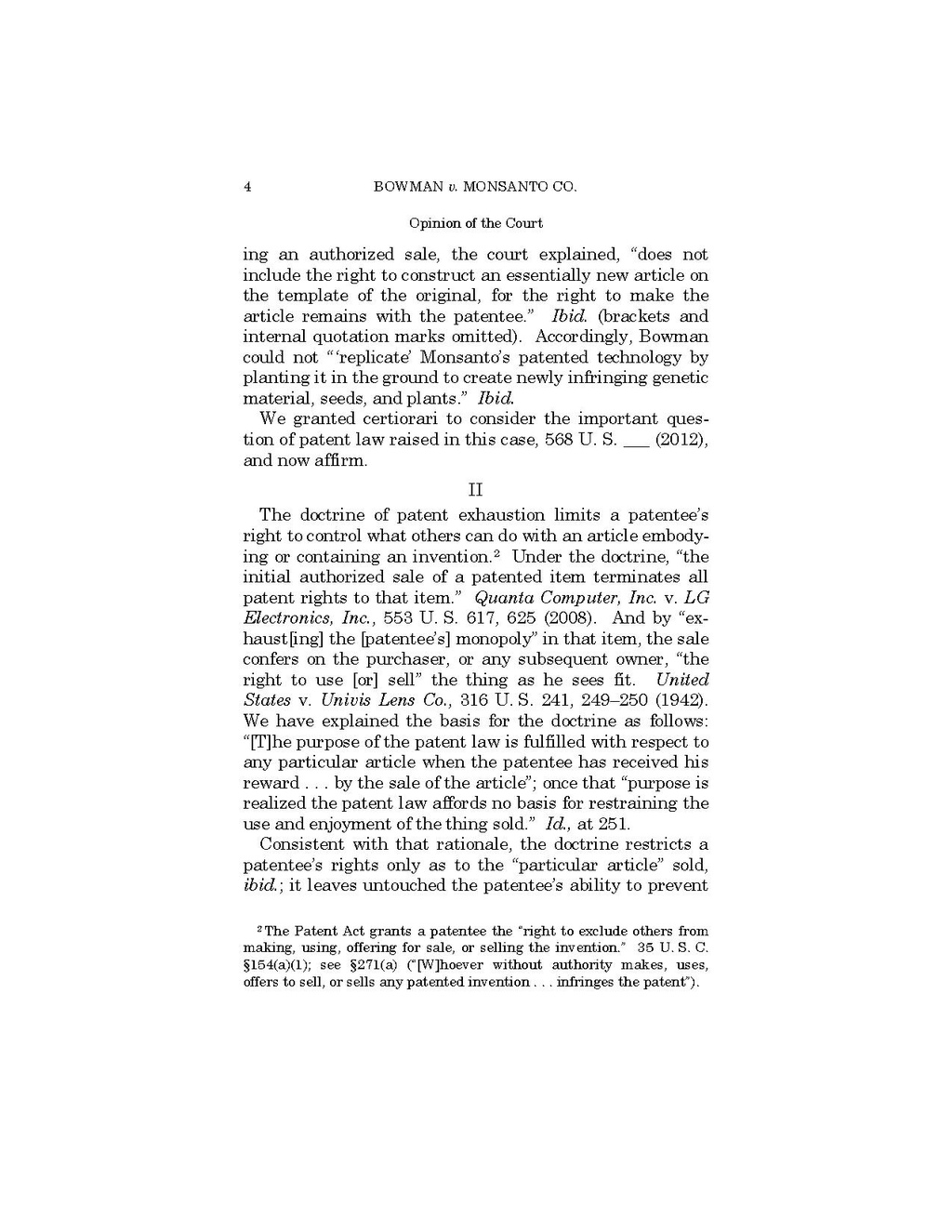Opinion of the Court
ing an authorized sale, the court explained, "does not include the right to construct an essentially new article on the template of the original, for the right to make the article remains with the patentee." Ibid. (brackets and internal quotation marks omitted). Accordingly, Bowman could not "‘replicate’ Monsanto’s patented technology by planting it in the ground to create newly infringing genetic material, seeds, and plants." Ibid.
We granted certiorari to consider the important question of patent law raised in this case, 568 U. S. ___ (2012), and now affirm.
II
The doctrine of patent exhaustion limits a patentee’s right to control what others can do with an article embodying or containing an invention.[1] Under the doctrine, "the initial authorized sale of a patented item terminates all patent rights to that item." Quanta Computer, Inc. v. LG Electronics, Inc., 553 U. S. 617, 625 (2008). And by "exhaust[ing] the [patentee’s] monopoly” in that item, the sale confers on the purchaser, or any subsequent owner, "the right to use [or] sell" the thing as he sees fit. United States v. Univis Lens Co., 316 U. S. 241, 249–250 (1942). We have explained the basis for the doctrine as follows: "[T]he purpose of the patent law is fulfilled with respect to any particular article when the patentee has received his reward . . . by the sale of the article"; once that "purpose is realized the patent law affords no basis for restraining the use and enjoyment of the thing sold." Id., at 251.
Consistent with that rationale, the doctrine restricts a patentee’s rights only as to the "Particular article" sold,ibid.; it leaves untouched the patentee’s ability to prevent
- ↑ The Patent Act grants a patentee the "right to exclude others from making, using, offering for sale, or selling the invention." 35 U. S. C. §154(a)(1); see §271(a) ("[W]hoever without authority makes, uses, offers to sell, or sells any patented invention . . . infringes the patent").
